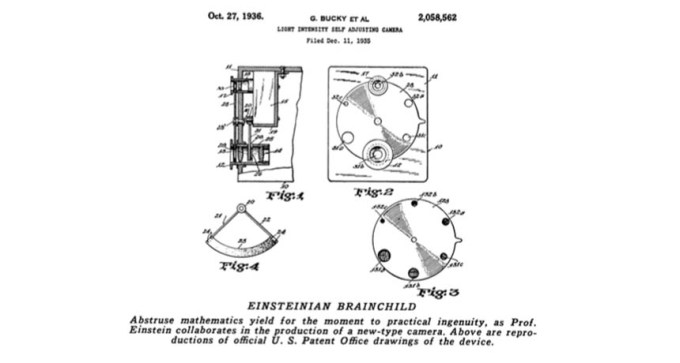Science News Magazine: Current Issue
Vol. 180 No. #6
Trustworthy journalism comes at a price.
Scientists and journalists share a core belief in questioning, observing and verifying to reach the truth. Science News reports on crucial research and discovery across science disciplines. We need your financial support to make it happen – every contribution makes a difference.
More Stories from the September 10, 2011 issue
-
 Space
SpaceMagnetic waves bake the sun’s corona
New observations may explain why the sun’s outer atmosphere is so blazing hot.
-
 Humans
HumansBrain waves make a fast brake
New technology would allow drivers to slam on the brakes faster just by thinking about it.
-
 Tech
TechCracked sewers bleed fecal germs
Studies follow leaks into waterways and drinking supplies.
By Janet Raloff -
 Space
SpaceNew hints of saltwater on Mars
Seasonal patterns consistent with briny seeps on the Red Planet, a new study concludes.
-

-
 Life
LifeLife
Flowery advertising, tempting toilets for shrews, bat beacons and more in this week’s news.
By Science News -
 Life
LifeCommon virus may ride up nose to brain
Almost everyone is infected, but in some people a widespread herpes bug appears to reach the central nervous system by an olfactory route.
-
 Life
LifeBacteria binged on BP oil but didn’t grow
Researchers suspect the spilled crude didn’t provide a balanced diet.
By Janet Raloff -
 Health & Medicine
Health & MedicineSleep apnea tied to later dementia
Elderly women who have gaps in their breathing at night have a heightened risk of developing cognitive problems, a study finds.
By Nathan Seppa -
 Life
LifeRare gene variants linked to ADHD
Missing or added genes cause attention deficit hyperactivity disorder and other disorders, such as autism.
-
 Tech
TechComputers get under our skin
Epidermal devices offer new potential to integrate electronics into the body.
-
 Life
LifePaper wasps help out for their own good
Behavior that appears altruistic actually benefits number one.
By Susan Milius -
 Paleontology
PaleontologySea monsters made great mothers
Fossilized plesiosaur with fetus suggests ancient reptiles cared for their young.
By Nadia Drake -
 Life
LifePlants and fungi recognize generous trading partners
Rewards — and consequences — stabilize underground biological market in mutualistic relationships.
By Susan Milius -
 Physics
PhysicsParticle physicists chasing ghosts
Wispy neutrinos could one day explain why matter dominates the universe.
By Devin Powell -
 Life
LifeAntidepressants show signs of countering Alzheimer’s
Human brain scans and mice data link serotonin-boosting drugs with reduced plaque density.
-

SN Online
SCIENCE & THE PUBLIC BLOG Space junk is lasting longer, making cleanup more urgent. See “Growing need for space trash collectors.” HUMANS A 2,000-year-old human skull shows signs of having undergone surgery. Read “Ancient Saharan head cases.” Instant messaging can’t replace the soothing sound of Mom’s voice. See “Moms talk, daughters’ hormones listen.” GENES & […]
By Science News -

Science Future for September 10, 2011
September 17–18The World Maker Faire in New York City gives do-it-yourselfers a chance to invent and create new stuff. Visit makerfaire.com September 21Late September means Oktoberfest: Celebrate the history and science of beer with the Houston Museum of Natural Science. More at hmns.org September 22 Goldie Hawn discusses education at the Cognitive Neuroscience of Learning […]
By Science News -

Science Past from the issue of September 9, 1961
NEW PARTICLE DISCOVERED — The discovery of a new elementary particle, omega meson, made at the University of California’s Lawrence Radiation Laboratory, and the finding of unidentified additional “particle systems” in the subatomic realm are believed to make it possible to push on in the next decade or two to a better explanation of how […]
By Science News -

The Compass of Pleasure: How Our Brains Make Fatty Foods, Orgasm, Exercise, Marijuana, Generosity, Vodka, Learning, and Gambling Feel So Good by David J. Linden
A neuroscientist gives a lively description of the pursuit of pleasure, one of the most powerful forces in the human brain. Viking, 2011, 230 p., $26.95
By Science News -

When Gadgets Betray Us: The Dark Side of Our Infatuation With New Technologies by Robert Vamosi
This investigation into the dark side of the digital world reveals hidden risks of smartphones and how to manage gadgets that can expose a user’s every move. Basic Books, 2011, 222 p., $26.99
By Science News -

Someone Else’s Twin: The True Story of Babies Switched at Birth by Nancy L. Segal
An expert on twins explores cases of identical twins raised apart after one is switched with another infant at birth, delving into the effects of nature and nurture on behavior. Prometheus Books, 2011, 301 p., $25
By Science News -

Rome: Day One by Andrea Carandini
An archaeologist puts forth a controversial theory, contending that a king named Romulus scratched out Rome’s boundaries in a day. Princeton Univ. Press, 2011, 172 p., $24.95
By Science News -

-

-

-
 Life
LifeHelping Bats Hold On
Scientists seek a savior as a deadly fungal pandemic explodes through vulnerable colonies.
By Janet Raloff -

Bypass’s Big Boon
Scientists spot key players in surgery’s surprising ability to reverse diabetes.
By Nathan Seppa -

Letters
Earthquake rumblings I reviewed this very interesting story (“Seismologists in a rumble over quake clusters,” SN: 5/7/11, p. 5) this morning, and it occurred to me that the connection between all of these very severe earthquakes might possibly be the change in weight distribution throughout the planet, resulting from temperature increases due to climate change […]
By Science News -
 Tech
TechEinstein invents automatic camera
Einstein invents fridges,cameras and clothing.
By Science News -

Ordinary Geniuses: Max Delbruck, George Gamow, and the Origins of Genomics and Big Bang Cosmology by Gino Segrè
A biography of physicists Max Delbrück and George Gamow describes their friendship and research in cosmology and genetics. Viking, 2011, 352 p., $27.95
By Science News
